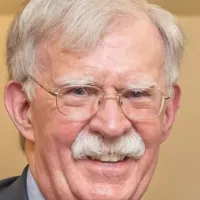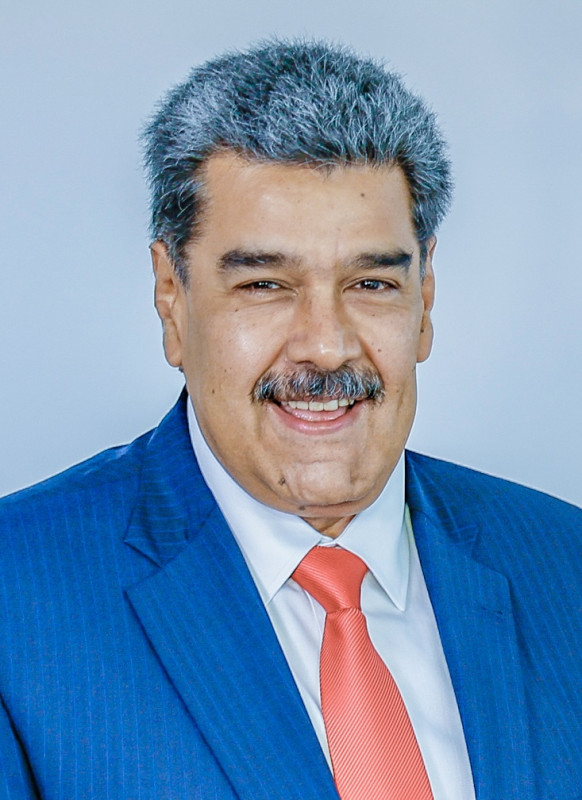Jeffrey Goldberg is an American journalist and editor-in-chief of The Atlantic, known for his foreign affairs coverage. He also moderates the PBS program Washington Week, maintaining his role at The Atlantic while hosting the show. His career highlights his prominent position in journalism and commentary on current events.
1965: Jeffrey Goldberg Born
In 1965, Jeffrey Mark Goldberg was born. He is an American journalist who is the editor-in-chief of The Atlantic.
2000: Joins The New Yorker
In 2000, Jeffrey Goldberg joined The New Yorker as a writer, adding to his experience at The Washington Post, The Jerusalem Post, The Forward, New York magazine, and The New York Times Magazine.
2003: Wins National Magazine Award
In 2003, Jeffrey Goldberg's "In the Party of God" won the National Magazine Award for reporting.
October 2006: Interviewed by New York magazine
In October 2006, Jeffrey Goldberg was interviewed by Boris Kachka, a contributing editor for New York magazine, about his book 'Prisoners' and other issues related to journalism and the Middle East.
2006: 'Prisoners' named Best Book of the Year
In 2006, 'Prisoners: A Muslim and a Jew Across the Middle East Divide' was named one of the best books of the year by The New York Times, The Washington Post, and the Los Angeles Times.
2006: Publication of 'Prisoners: A Muslim and a Jew Across the Middle East Divide'
In 2006, Jeffrey Goldberg's book, 'Prisoners: A Muslim and a Jew Across the Middle East Divide', was published by Knopf. It describes Goldberg's experiences in Israel working at the Ketziot military prison camp and his friendship with a prisoner named Rafiq.
2007: Hired by The Atlantic
In 2007, Jeffrey Goldberg was hired by David G. Bradley to write for The Atlantic after nearly two years of attempts. Bradley even rented ponies for Goldberg's children to persuade him.
2011: Joins Bloomberg View as a Columnist
In 2011, Jeffrey Goldberg joined Bloomberg View as a columnist, adding to his journalism career.
2013: Considering Relinquishing Israeli Citizenship
In 2013, Jeffrey Goldberg stated in an interview with the Washingtonian that he was considering relinquishing his Israeli citizenship if Israel became more of a theocratic, totalitarian-style state.
2014: Leaves Bloomberg
In 2014, Jeffrey Goldberg ended his role at Bloomberg View.
2016: Becomes Editor-in-Chief of The Atlantic
In 2016, Jeffrey Goldberg joined The Atlantic and became editor-in-chief, focusing his writing on foreign affairs, particularly the Middle East and Africa.
2016: Shaped The Atlantic's Endorsement of Hillary Clinton
In 2016, Jeffrey Goldberg reportedly shaped The Atlantic's endorsement of Hillary Clinton in the United States presidential election, marking only the magazine's third endorsement in its 160-year history.
2018: Alleged Trump comments
In 2018, During the cancelling of a visit to the Aisne-Marne American Cemetery and Memorial in France, which contains the remains of 2,289 U.S. service members killed in combat in World War I, President Donald Trump is alleged to have privately said, "Why should I go to that cemetery? It's filled with losers."
September 2020: Publishes "Trump: Americans Who Died in War Are 'Losers' and 'Suckers'" Article
In September 2020, Jeffrey Goldberg published an article in The Atlantic alleging that President Donald Trump privately referred to fallen U.S. service members as "losers" and "suckers" during a cancelled 2018 visit to the Aisne-Marne American Cemetery and Memorial in France.
2020: Trump Officials Deny Goldberg's Report
In 2020, following Jeffrey Goldberg's article, numerous Trump officials, including Jamie McCourt, John Bolton, and Zach Fuentes, denied that President Trump made the disparaging comments about fallen U.S. service members.
August 2023: Becomes Moderator of Washington Week
In August 2023, Jeffrey Goldberg became the moderator of the PBS program Washington Week, which was renamed "Washington Week with The Atlantic" to reflect an editorial partnership.
August 2023: Moderates Washington Week
In August 2023, Jeffrey Goldberg began moderating the PBS program Washington Week (rebranded as Washington Week with The Atlantic). He continued to serve as The Atlantic's editor.
October 2023: John Kelly Confirms Goldberg's Reporting
In October 2023, John Kelly confirmed to CNN that Jeffrey Goldberg's reporting on President Trump's comments about fallen soldiers was accurate.
March 2025: Publishes Article on Accidental Inclusion in Secret Chat
In March 2025, Jeffrey Goldberg published an article in The Atlantic stating that he was inadvertently included in a Signal chat by members of President Donald Trump's cabinet, revealing secret military plans for U.S. attacks in Yemen.
Mentioned in this timeline

Donald John Trump is an American politician media personality and...

Barack Obama the th U S President - was the...

Hillary Diane Rodham Clinton is an American politician lawyer and...
The United States of America is a federal republic located...

John Bolton is an American attorney diplomat and Republican consultant...
CNN Cable News Network is a multinational news organization founded...
Trending

7 months ago Carrie Coon Discusses Challenges Talking to Trump Supporters and Her 'White Lotus' Role.
2 months ago CBS Saturday Morning co-hosts Miller and Jacobson to depart amid Paramount Television Studios shakeup.
3 months ago Unidentified Drone Explodes in Kazakhstan, Prompting Investigation and Heightened Airspace Control.

1 month ago Chris Pratt and Anna Faris share friendly hug during Thanksgiving reunion years after divorce.

2 months ago Britney Spears Deletes Instagram Amidst Concern: A Deep Dive
The Australian Open is one of the four annual Grand Slam tennis tournaments Held at Melbourne Park in Melbourne Australia...
Popular

XXXTentacion born Jahseh Dwayne Ricardo Onfroy was a controversial yet...

Carson Beck is an American college football quarterback currently playing...

Stranger Things created by the Duffer Brothers is a popular...
Curt Cignetti is an American college football coach currently the...

Marco Rubio is an American politician attorney and diplomat He...

Nicol s Maduro is a Venezuelan politician who has served...

